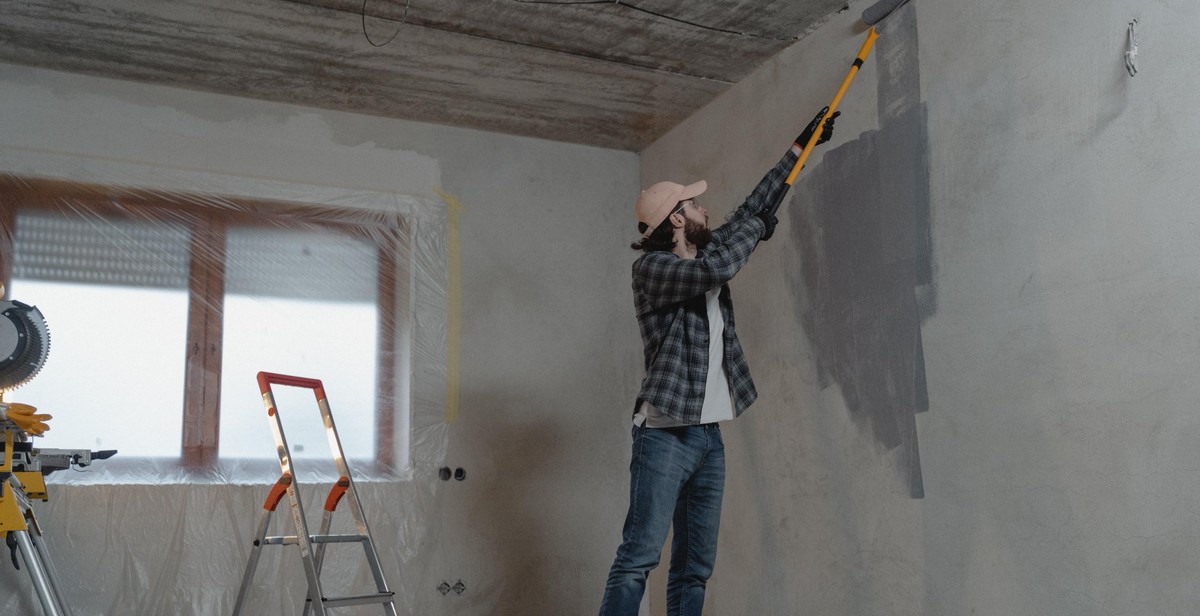How to Improve Home Security: Tips for Securing Your Property and Loved Ones
As a professional article writer and content creator, I understand the importance of home security. Home security is a crucial aspect of our lives that we should never take for granted. Our homes are not just a place where we live; they are also where we keep our most valuable possessions and the people we love the most. Therefore, it is essential to secure our homes and loved ones from any possible threats.
Why Home Security is Important
Home security is vital for several reasons. Firstly, it helps to protect our loved ones from harm. Burglars and intruders can cause physical harm to our loved ones, leading to severe injuries or even death. Secondly, it helps to protect our property. Our homes contain valuable possessions such as jewelry, electronics, and other expensive items that burglars can steal. Thirdly, home security helps to deter criminals. A well-secured home with visible security measures such as alarms, cameras, and locks can deter burglars and intruders from attempting to break in.
In this article, I will provide you with tips on how to improve your home security and secure your property and loved ones. These tips are practical and easy to implement, ensuring that you have peace of mind knowing that your home is secure.

Assessing Your Home Security Needs
Before you can improve your home security, it is important to assess your current situation and identify any vulnerable areas that need to be addressed. This involves evaluating your current security measures and determining what additional steps you can take to secure your property and loved ones.
Identifying Vulnerable Areas
The first step in assessing your home security needs is to identify any vulnerable areas in and around your property. This includes:
- Doors and windows: Check the quality and condition of your doors and windows. Are they sturdy and secure? Can they be easily opened or tampered with?
- Outdoor lighting: Is your property well-lit at night? Are there any dark areas where intruders could hide?
- Landscaping: Are there any bushes, trees or other landscaping that could provide cover for intruders?
- Security system: Do you have a security system in place? Is it functioning properly?
- Neighbors: Do you know your neighbors? Are they trustworthy? Do they keep an eye out for suspicious activity?
Assessing Your Current Security Measures
Once you have identified any vulnerabilities, the next step is to assess your current security measures. This includes:
- Locks: Check the quality and condition of your locks. Are they difficult to pick or break?
- Alarms: If you have a security system, test it to ensure it is functioning properly.
- Cameras: If you have surveillance cameras, check the quality and coverage to ensure they are effective.
- Emergency plan: Do you have an emergency plan in place for your family in case of a break-in or other emergency?
By identifying vulnerable areas and assessing your current security measures, you can determine what additional steps you need to take to improve your home security and protect your property and loved ones.

Improving Physical Security
When it comes to securing your property and loved ones, physical security measures should be a top priority. Here are some tips on how to improve physical security:
Installing Deadbolts and Door Reinforcements
One of the easiest ways to secure your home is by installing deadbolts and door reinforcements. Deadbolts add an extra layer of security to your doors, making them more difficult to kick in or pick. Door reinforcements, such as metal plates and strike boxes, strengthen the door jamb and prevent it from breaking during a forced entry.
Securing Windows and Sliding Doors
Windows and sliding doors are often the weakest points of entry in a home. To secure them, consider installing window locks and security bars. For sliding doors, use a dowel or metal bar to prevent them from being forced open. You can also install glass break sensors that will alert you if a window is broken.
Installing Outdoor Lighting and Security Cameras
Outdoor lighting and security cameras are effective deterrents against burglars. Motion-activated lights will illuminate any suspicious activity, making it difficult for intruders to approach unnoticed. Security cameras provide an extra layer of protection by recording any suspicious activity and helping law enforcement identify perpetrators.
- Install motion-activated lights around the perimeter of your home.
- Place security cameras in strategic locations, such as at entry points and near valuables.
- Make sure the cameras are visible to deter burglars.
By implementing these physical security measures, you can significantly improve your home’s security and protect your loved ones and valuables from potential threats.

Enhancing Digital Security
In today’s digital age, securing your Wi-Fi network is just as important as securing your physical property. With more devices being connected to the internet, it’s crucial to take steps to protect your home network from potential threats.
1. Change Your Wi-Fi Name and Password
One of the first steps you should take to enhance your digital security is to change your Wi-Fi network name and password. This will prevent unauthorized access to your network and ensure that only authorized users can connect to it.
- Choose a strong password that includes a mix of letters, numbers, and symbols.
- Avoid using common words or phrases that can be easily guessed.
- Change your password regularly to prevent it from being compromised.
2. Enable WPA2 Encryption
WPA2 encryption is a security protocol that encrypts the data that is transmitted over your Wi-Fi network. Enabling this feature will make it much more difficult for hackers to intercept and steal your data.
3. Disable Remote Management
Remote management allows you to manage your router from a remote location, but it also makes it easier for hackers to access your network. Disable this feature to prevent unauthorized access to your router.
4. Keep Your Router Firmware Up-to-Date
Router firmware updates often include security patches that address known vulnerabilities. Make sure to keep your router firmware up-to-date to ensure that your network is protected against the latest threats.
5. Use a Virtual Private Network (VPN)
A VPN encrypts your internet connection and hides your IP address, making it much more difficult for hackers to track your online activity. Use a VPN when accessing sensitive information or when using public Wi-Fi networks.
By taking these steps to enhance your digital security, you can ensure that your home network is protected against potential threats and that your personal information remains secure.

Creating a Home Security Plan
Establishing home security habits is one of the most important steps in keeping your property and loved ones safe. However, even with the best habits, emergencies can still happen. That’s why it’s crucial to have a solid home security plan in place. Here are some steps you can take to create a home security plan.
Assess Your Property
The first step in creating a home security plan is to assess your property and identify potential security risks. Walk around your property and look for any vulnerabilities, such as dark areas, unsecured windows or doors, and overgrown shrubs. Once you’ve identified these risks, take steps to eliminate or mitigate them.
Create Emergency Plans
In addition to identifying potential security risks, you should also create emergency plans. This includes creating a fire evacuation plan, identifying a safe room in case of a break-in, and establishing a communication plan with your family and emergency services.
Fire Evacuation Plan
In case of a fire, it’s important to have a plan in place to evacuate your home quickly and safely. Make sure everyone in your household knows the plan and that there are multiple escape routes from each room. Conduct regular fire drills to ensure everyone knows what to do in case of an emergency.
Safe Room
A safe room is a designated room in your home where you can go in case of a break-in or other emergency. This room should be easily accessible and have a door that locks securely. Make sure everyone in your household knows where the safe room is and how to get there quickly.
Communication Plan
Establish a communication plan with your family and emergency services. Make sure everyone knows how to contact each other in case of an emergency and have a designated meeting place outside of your home. Program emergency services numbers into your phones and keep a list of important contacts in a safe place.
Invest in Home Security Systems
Investing in a home security system can provide an added layer of protection for your property and loved ones. There are a variety of systems available, including alarms, cameras, and motion sensors. Do your research and choose a system that fits your needs and budget.
By taking these steps and creating a solid home security plan, you can help ensure the safety of your property and loved ones.

Conclusion
Home security is a top priority for every homeowner. The safety of your loved ones and your property should never be compromised. By following the tips outlined in this article, you can significantly improve your home security and keep burglars at bay. Remember to secure your doors and windows, install a security system, use smart technology, and keep your home well-lit. Additionally, it is essential to be proactive and stay vigilant. Always be aware of your surroundings and keep an eye out for any suspicious activities in your neighborhood.
Investing in home security may seem like a daunting task, but it is a small price to pay for peace of mind. By taking the necessary precautions, you can protect your family and your property from potential threats. Remember, prevention is better than cure, and taking steps to secure your home can save you from a lot of trouble in the long run.
Stay Safe and Secure
Don’t wait until it’s too late to secure your home. Implement these tips today and take control of your home security. By being proactive and staying vigilant, you can ensure that your loved ones and your property are safe from harm. Remember, home security is not a one-time task, but a continuous process. Keep reviewing and updating your security measures to stay ahead of potential threats. Stay safe, stay secure!
